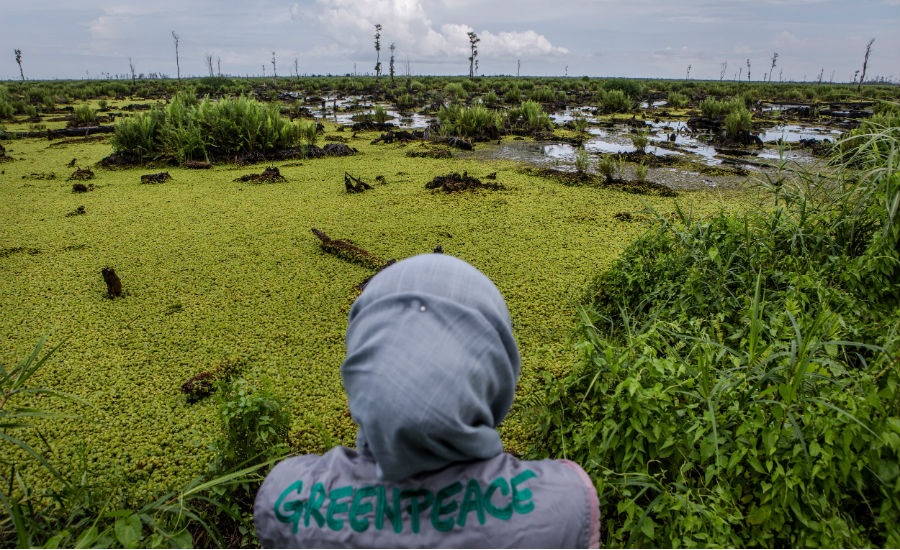Environmental advocacy group Greenpeace has suspended its campaign against palm oil supplier IOI Group after the Malaysian firm announced a commitment to address deforestation and exploitation in its supply chain.
The announcement comes one year after IOI Group was suspended from the Roundtable on Sustainable Palm Oil — a non-profit organization uniting stakeholders from all sectors of the palm oil industry — for clearing peatlands in Kalimantan, Indonesia. A complaint from nongovernmental organization AidEnvironment led to the suspension, and hundreds of Greenpeace supporters took part in a campaign protesting IOI’s practices, which included a blockade of the company’s refinery in Rotterdam and a protest at its headquarters in Kuala Lumpur.
While the suspension was lifted in August 2016, major companies such as Unilever, Mars and Nestlé canceled their contracts with IOI.
Since January, IOI has begun proactively monitoring its palm oil suppliers to ensure they are not destroying rainforests or peatlands. The firm has also agreed to work with nongovernmental organizations to find a solution to social conflict between the communities of Long Teran Kanan and the IOI-Pelita joint venture in Sarawak, Malaysia.
IOI has also committed to changing its practices to respect the rights of plantation workers and has commissioned a consultant to verify its progress on labor issues. Furthermore, IOI has agreed to independent third-party verification of progress in the second quarter of 2018.
“IOI stands firmly committed to the implementation of its sustainability policies and believes that its progress in key areas — combined with these new commitments and measures — sends a strong signal to stakeholders around its desire for continued improvement,” the company said in a news release.
Greenpeace still suggests that companies planning to resume business with IOI should specify in their contracts that IOI must demonstrate ongoing progress in line with its Sustainable Palm Oil Policy and the additional commitments it has made.
Kiki Taufik, global head of Greenpeace’s Indonesian Forests Campaign, noted the advocacy group will keep a watchful eye on IOI.
“IOI has come a long way in the past 12 months, and has now started taking meaningful action to eliminate forest destruction and human rights abuses from its supply chain,” Taufik says. “Greenpeace will be watching closely to make sure IOI follows through. There is still a lot of work to be done to clean up the palm oil industry, and we expect other traders to respond with action plans of their own.”
The Rainforest Alliance Network wasn’t as optimistic, pointing to labor concerns highlighted in an investigation by Finnwatch that the network says still haven’t been addressed. Particularly, the network cited workers paying recruitment fees, workers not being paid a monthly minimum wage and the company holding onto workers’ passports.
“IOI has started to make progress addressing the egregious and far-reaching impacts of its palm oil business, but its statement overplays the progress made, especially on key human rights issues,” says Gemma Tillack, agribusiness campaign director for the Rainforest Alliance Network.
Palm oil use in food products, cosmetics and other everyday items makes it likely that demand for the flavorless oil will continue to rise. The U.S. Food and Drug Administration’s ban on partially hydrogenated oils (PHOs) contributes to greater interest in palm oil.
Confectionery products often contain palm oil because it has qualities similar to PHOs but does not have to be partially hydrogenated. When the FDA began regulating the use of trans fats, palm oil became a suitable alternative, especially for fillings and coatings.
Furthermore, palm oil has a high melting point, making it a more attractive option for the confectionery industry. Its cost-effectiveness and high yield also add to its appeal.





